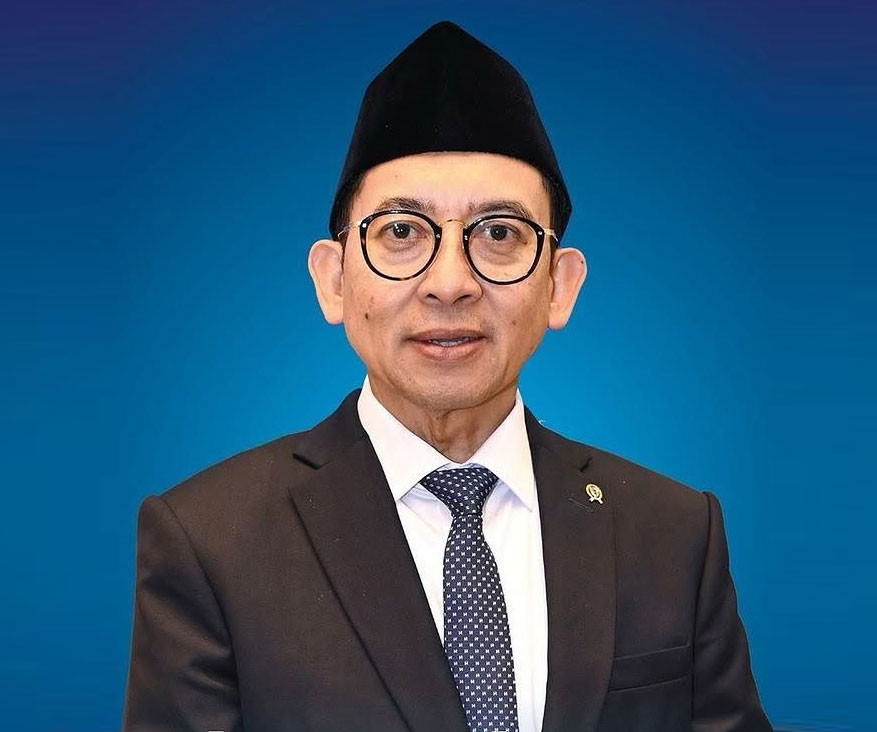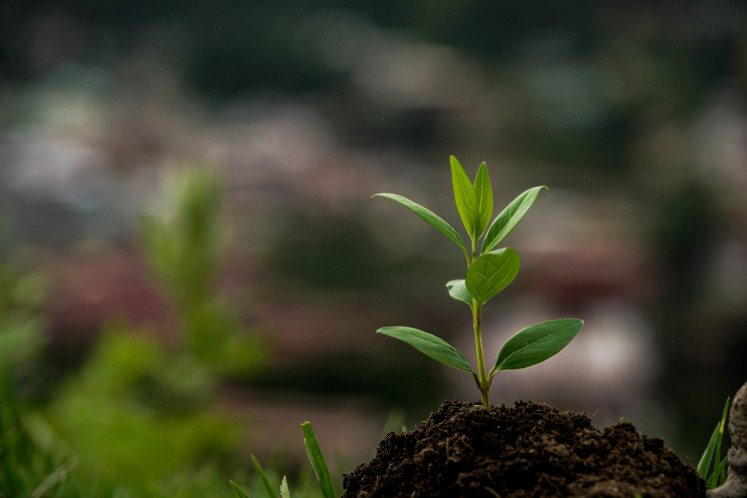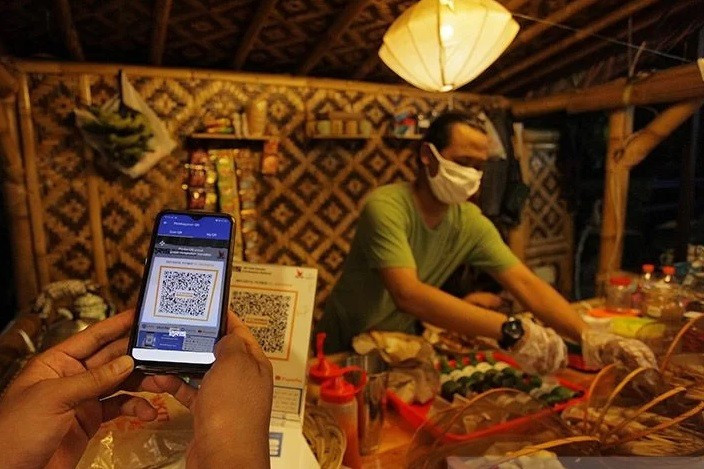Popular Reads
Top Results
Can't find what you're looking for?
View all search resultsPopular Reads
Top Results
Can't find what you're looking for?
View all search resultsA year that shaped the narrative: Indonesia’s cultural renaissance begins
Change text size
Gift Premium Articles
to Anyone
T
his year marks one year since the establishment of the Republic of Indonesia’s Culture Ministry - the first time in our nation’s 79 years of independence that culture stands with a ministry of its own, a historic reaffirmation of our constitutional mandate, enshrined in Article 32(1) of the 1945 Constitution, which declares that “the State shall advance the national culture amid world civilization by guaranteeing the freedom of the people to preserve and develop their cultural values.”
The establishment of a dedicated Culture Ministry under President Prabowo Subianto’s leadership therefore signifies more than administrative restructuring—it signals a civilizational awakening and an institutional expression of our determination to place culture not at the periphery, but at the very heart of national development.
When we talk about culture, we often imagine something distant — a performance on stage, a traditional craft or an artifact behind glass in a museum. But culture is not something we visit; it is something we live.
Culture is the collective memory of our people, the breath that gives life to our spirit, our creativity and our conscience. It is both the foundation of our national identity and the source of our resilience. Culture is also about the dignity of a nation — it is the reflection of how a people understand their origins, value their heritage and honor their identity.
Through the recent repatriation of Pithecanthropus erectus — the “Java Man” — and more than 28,131 other fossils from the Netherlands on Sept. 26 during Prabowo’s state visit to the country, Indonesia reaffirmed that dignity in a deeply symbolic and historic way.
We must be proud to reaffirm our status as a global cultural superpower, home to 1,340 ethnic groups and 718 living languages — representing nearly 10 percent of the world’s linguistic diversity.
We often say Indonesia is a superpower in the field of culture, an adi kuasa kebudayaan, because of its extraordinary diversity. The word “diversity” itself is no longer enough; we now introduce the term mega-diversity.
Stretching from Sabang to Merauke and Miangas to Pulau Rote, the nation’s cultural expressions continue to flourish. The Culture Ministry has so far recorded 228 National Cultural Heritage Sites and 2,727 elements of Intangible Cultural Heritage — including 514 new additions in 2025. Across the archipelago, more than 29,000 Cultural Advancement Objects have also been documented.
As an upstream sector, culture plays a critical and catalytic role in fostering sustainable growth across multiple dimensions of national life. When we examine the downstream sectors—such as tourism, gastronomy, fashion, design, film, gaming and the broader creative industries—we see how deeply culture informs and enriches them.
A destination without cultural character is merely a place; a dish without heritage is just food; fashion without story is just fabric. It is culture that gives these industries authenticity, emotional connection and economic distinctiveness in the global market. This interdependence underscores the urgency of building a culture-based economy—an economic model rooted in identity, creativity and sustainability. By positioning culture as the upstream driver, we not only create jobs and attract investment but also strengthen national identity, promote social cohesion and enhance global competitiveness.
In pursuit of this vision, the government through the Culture Ministry continues to strengthen efforts to cultural protection and preservation, diplomacy, promotion and cooperation, as well as the development, utilization and cultivation of culture.
To keep traditions alive and relevant, the ministry places special emphasis on passing cultural knowledge to the young generation through innovative programs such as Gerakan Seniman Masuk Sekolah (Artists Enter Schools Movement) and Belajar Bersama Maestro (Learning with the Masters), where artists, artisans and cultural bearers become mentors who nurture creativity and cultural understanding among the youth. As of 2025, these initiatives have reached 350 schools across 26 cities and regencies, building bridges between generations and allowing young Indonesians to understand, respect and creatively reinterpret their heritage.
Under Prabowo’s leadership, the Indonesian government is deeply committed to strengthening the role of museums not merely as custodians of heritage, but as catalysts for a vibrant, competitive and sustainable economy.
Today, Indonesia is home to 481 museums across the archipelago, each serving as a vital repository of our collective history and identity. Through the advancement of research and documentation, enhancement of educational programming, digitization of collections and creation of inclusive spaces for dialogue and learning, Indonesia is transforming its museums into dynamic, knowledge-driven ecosystems – and as of October 2025, there have been 40 new museum registrations and 36 museums standardized.
Parallel to these efforts, the ministry continues to strengthen the empowerment and resilience of belief communities and institutions. Through 34 strengthened partnerships, the ministry supports Lembaga Kepercayaan and Lembaga Adat in enhancing their capacity — ensuring that spiritual traditions, customary laws and local wisdom remain integral to the nation’s moral and cultural framework. The newly launched Gerakan Pangan Lokal Nusantara (Indonesian Local Food Movement) puts an emphasis on promoting the local food system, born from the long-standing interaction between people, nature and belief, in line with the free nutritious meal program — a transformative initiative that connects culture, sustainability and social welfare.
The recent successes of Reog Ponorogo, Kebaya and Kolintang being inscribed by UNESCO at the end of 2024 are also acts of cultural sovereignty. At the start of 2025, we took the momentum further by nominating three new intangible heritages to UNESCO: Tempe Culture, Mak Yong Theater and Jaranan, which not only celebrate Indonesia’s diversity but also strengthen regional and diaspora ties, showing that culture knows no borders.
In addition, the Literary Translators and Promoters Program forms a key part of Indonesia’s cultural diplomacy agenda by strengthening the national literary ecosystem while expanding the global reach of Indonesian literature. Through workshops, mentorship sessions and collaboration with international publishing networks, we hope to bring Indonesian voices to the world stage with authenticity and artistic excellence.
Our cultural diplomacy perhaps reached a new height with the Culture, Heritage, Art, Narrative, Diplomacy and Innovation (CHANDI) 2025 forum, held from Sept. 3 to 5 in Denpasar, Bali, bringing together representatives from 38 countries — including ministers, ambassadors and regional leaders to adopt the Bali Cultural Initiative Declaration 2025 and declare our shared commitments in cultural preservation and innovation.
In the years ahead, however, culture will play an increasingly vital role in accelerating both national and global economic growth. As global awareness of culture’s strategic value in development continues to grow, culture can no longer be seen merely as an accessory or supplementary sector. Within the framework of post-2030 sustainable development, culture is projected to become a standalone goal as gauged in the MONDIACULT Declaration 2022. This marks a profound paradigm shift: we must stop viewing culture as a burden and start treating it as a strategic asset.
In today’s fast-evolving cultural landscape, Indonesia’s greatest asset is not only its heritage, but its people. Through the National Talent Management (Manajemen Talenta Nasional, MTN) program, the Culture Ministry is building an ecosystem to identify, nurture and elevate creative talents across literature, film, performing arts, visual arts and music. From January to October 2025, MTN has mapped 1,300 literary talents, 1,220 filmmakers, 616 musicians and hundreds more artists nationwide aimed at transforming creativity into a strategic resource and turning Indonesian talent into a driving force for global cultural influence.
Meanwhile, Indonesia’s film industry continues to make its mark on the world stage. From Cannes to Venice, Berlin, Busan and Rotterdam, Indonesian filmmakers are earning international acclaim.
The numbers tell an inspiring story: in 2024, 151 Indonesian films were released, drawing over 80 million viewers and commanding 70 percent of the domestic market share. As of October 2025, audience numbers have already reached more than 77 million, with projections suggesting that by 2027, the film industry could contribute US$ 9.8 billion to the national gross domestic product and generate 14 percent annual job growth. At the same time, it is critical to prioritize local film ecosystems, recognizing that the heart of Indonesia’s cinematic power lies in its diverse regional storytellers, through various initiatives such as local film incubation labs, scriptwriting competitions on national heroes and capacity-building workshops.
While the music ecosystem is thriving, the first Indonesia Music Conference (KMI) brought together relevant ministries and institutions to chart the future of Indonesia’s music ecosystem by responding to wide-ranging issues, including royalty reform and music education updates to AI regulation, cultural mobility visas and IP-based financing.
At the same time, in 2025, the number of grant recipients of Dana Indonesiana, Indonesia’s cultural endowment fund, surged from around 348 last year to more than 2,800, ensuring that cultural funding reaches more communities, creators and innovators across the archipelago.
Ultimately, these achievements reflect more than programs and numbers — they represent a nation reclaiming its cultural destiny. Indonesia’s cultural renaissance is not a coincidence, but the result of vision, leadership and collective will. Under Prabowo’s direction, the Culture Ministry is shaping a future where heritage and innovation walk hand in hand — where temples and technology, ancestral wisdom and artificial intelligence coexist within the same narrative of progress.
This is the essence of Indonesia’s new cultural era: one that celebrates diversity as strength, talent as capital and identity as the cornerstone of sustainable development. In a world increasingly defined by speed and disruption, Indonesia stands firm on the timeless foundation of its culture. The nation is not merely preserving its past; it is building its future through culture — with confidence, creativity and conviction that the next chapter of Indonesia’s civilization will be written in its own voice, by its own people.











